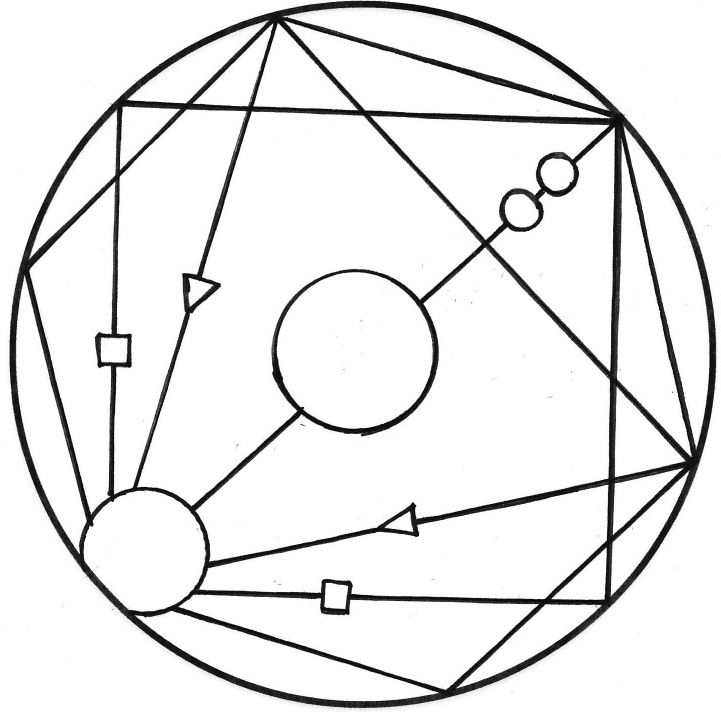Il Progetto, la cui durata va da novembre 2016 a giugno 2023, è finanziato dalla Fondazione Nando ed Elsa Peretti, Delegació a Catalunya. Responsabile scientifico del Progetto è la prof.ssa Cecilia Martini.
Descrizione del Progetto
An inclusive idea of Mediterranean culture and interfaith dialogue are major concerns of the present day. They are not vague hopes, but something that had a concrete existence in the learned communities of Medieval Islam.
Between the 8th and 12th centuries an unprecedented cultural movement took place in Baghdad: almost all the texts of ancient secular knowledge (mathematics, astronomy, medicine, philosophy etc.) were translated from Greek, Syriac, middle Persian and Hindi into Arabic. From Baghdad these translations reached every part of the Islamic empire and the Latin West. This Medieval cultural exchange created the conditions for the existence of a figure like Ramon Llull (c. 1232-1316) .
The Nando and Elsa Peretti Foundation has devoted much research to Ramon Llull, who travelled all over Europe and the Mediterranean borders, learnt Arabic, and dedicated his last works to the Tunisian sultan. At the Council of Vienne (1311-13) Llull suggested creating chairs of Arabic and Oriental languages to promote dialogue with all cultures He worked for a Pan-Mediterranean inter-culturalism and set out a certain idea of Europe, as a fusion of different peoples.
This three-year project focuses on the centuries that preceded Ramon Llull, and the historical and cultural background that makes it possible to explore the role of Arabic and Islamic culture in the transmission of learning in the Mediterranean area between the 8th and 12th centuries.
Since the end of the nineteenth this topic has only been studied by specialized scholarship . However, this unique moment in the history of human civilization deserves to be widely known because it creates an awareness of the common cultural past that binds the Islamic East to the Latin Europe. In addition, it educates the young, increasingly multi-ethnic and multi-cultural Mediterranean generation to consider the peaceful coexistence of peoples as possible, and their cultural and scientific cooperation as appropriate.
In this perspective the Interdepartmental Centre for Research in Medieval Philosophy “Carlo Giacon” (CIRFIM – University of Padua, Italy) has among its fields of research “the study of the transmission of Greek rationality and thought to the Medieval Latin authors, through Arabic and Hebrew thinkers”.
The core ideas of the project are:
- To give students linguistic access to the Arabic medieval philosophical and scientific sources;
- To encourage critical scholarship on the Arabic transmission of learning in the Mediterranean area;
- To promote young Western and Arab scholars’ research on these topics;
- To test the degree of awareness of this common heritage in the contemporary cultural debate of Arabic-speaking countries;
- To openly disseminate research by the scientific community to the public so it will have a positive effect on the construction of an inclusive idea of Mediterranean culture.
The activities of this three-year project are both scientific and educational. The scientific part will consist of public lectures in Italy and the Maghreb, scholarships, and publications on the transmission of ancient texts in interfaith and interdenominational scholarly circles of medieval Islam.
The educational activities on the topic of the project will consist of a three-year PhD fellowship in the PhD Philosophy Programme –at the University of Padua; an education week reserved for PhD students of Italian and Arabic Universities; a three-year lectureship in Arabic language at the University of Padua; a refresher course for high school teachers to be held in Padua; a joint presentation, at the Mohammed V University in Rabat (Morocco), of the volume by P. Villalba “Ramon Llull, Vida I obres” (funded by the Nando and Elsa Peretti Foundation); a presentation of the same volume at the University of Padua.
The expected results are:
- To highlight the role of the learned communities of medieval Islam in the transmission of a common heritage of knowledge to the three great monotheistic religions and to the different Mediterranean civilizations they have inspired;
- To contribute to the scholarly debate on this issue with scientific publications;
- To educate a PhD student who will carry out research on the cultural exchange between Greek, Arabic and Latin traditions that characterized the transmission and transformation of knowledge in the Mediterranean area;
- To provide a significant number of students with the linguistic skills needed to approach medieval Arabic sources;
- To educate a significant number of high school teachers on the role of Arabic culture in the transmission and circulation of philosophical and scientific knowledge in the Mediterranean area.
- To increase awareness in the Arab and European public of the interrelations between the different traditions of thought of the Mediterranean area and of the role played by such exchanges in the construction of each tradition’s cultural identity.
The English and Arabic versions of the CIRFIM website will facilitate the dissemination of the project’s results.
CIRFIM is eager to grasp the opportunity to encourage studies and spread an awareness of the medieval routes of knowledge that joined the opposite shores of the Mediterranean Sea and brought together men of different languages and religions, all involved in a common cultural project.
Solid historical knowledge of a common legacy may help to design a future far removed from the dangerous clash of civilizations.

